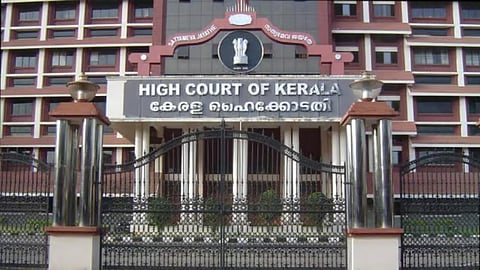

The special bench of the Kerala High Court, hearing cases related to the Hema Committee report, orally remarked that for the effective implementation of the report's recommendations, the Film Policy Drafting & Cinema Conclave Committee should be headed by a Chairperson who commands the trust and confidence of women. The bench, comprising Justices AK Jayasankaran Nambiar and CS Sudha, was formed on September 5 to exclusively hear cases linked to the Hema Committee report, which was released in August 2024 and exposed widespread sexual harassment in the Malayalam film industry.
"When you are having a conclave, and specifically to address an issue which is now coming to the fore because of the Hema Committee recommendations etc... I think it should be a committee that inspires confidence in the women citizens. So, when you have these committees and when you have a Chairperson for the Committee, ensure that it is a person that instills confidence," Justice Nambiar orally observed.
The bench made this observation after advocate Sandhya Raju, representing the Women in Cinema Collective, informed the court that the Cinema Conclave was set to be chaired by a person accused of being "extremely gender-bullying" and corrupt.
Following the controversy surrounding the Hema Committee report, the Kerala state government decided to organise a conclave for the film industry to map out its future direction. However, the appointment of Shaji N Karun as chairperson has drawn criticism, with several women directors alleging that he engaged in mental harassment.
TNM had earlier reported on how filmmakers such as Indu Lakshmi and Mini IG accused Shaji, a veteran filmmaker and the chairman of the Kerala State Film Development Corporation (KSFDC), of verbal abuse and targeted harassment. Indu in particular has shared harrowing accounts of the vindictive behaviour she allegedly faced from Shaji, including threats to ensure that her future films would never see the light of day.
This issue was brought before the special bench, but the state’s counsel opposed the argument, stating that the Committee and its Chairperson would not be responsible for policy decisions. Instead, the Committee’s role would be limited to collecting information and presenting it to the government, which would ultimately formulate the policy. The bench then remarked that it would be preferable if the Committee were led by someone who instills confidence among women.
The state government responded that all collected inputs from various organisations would be presented at the conclave. The bench subsequently directed the state to submit details of the conclave’s proposed actions before the next hearing and scheduled the case for the first week of March.
The case was first heard on September 10, 2024, when the bench criticised the state government for its lack of action on the report’s findings. “We are surprised by this inaction. When it received the report or when DGP was given a copy in Feb 2021, some action must have been taken. Assuring confidentiality of women, we understand that. But the state govt is confronted with practices derogatory to women, what has it done? What is it that you are doing to address problems facing women, not just in cinema?” the court questioned.
On October 14, the court ordered that legal action be initiated based on the instances of harassment detailed in the Hema Committee report, treating witness statements given to the committee as “information.” On November 21, the court admitted a petition from the Women in Cinema Collective (WCC) seeking a ‘Cinema Code of Conduct’ to regulate the Malayalam film industry. On November 27, the court instructed the SIT to appoint a nodal officer to act as a point of contact for witnesses who feel intimidated or threatened.
On January 16, the Kerala state government informed the court that 40 first information reports (FIRs) had been registered following the report’s release.
The special bench was established on September 5 while hearing an appeal filed by producer Sajimon Parayil, who challenged a single-judge order allowing the release of the Hema Committee Report. On July 6, the State Information Commission (SIC) had directed the Kerala government to release the report to RTI applicants by July 25, after redacting witness names and identities. Although the report was set for release on July 24, Sajimon sought a court stay, citing privacy concerns. However, the High Court upheld its release, and the report was made public on August 13.
(With IANS inputs)